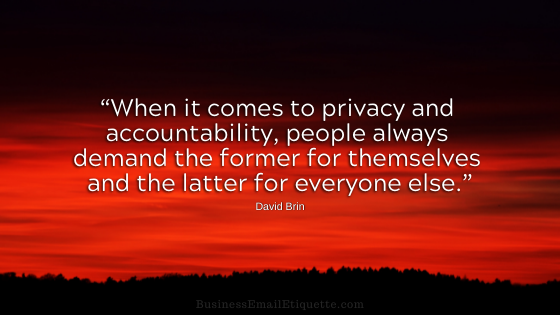Do You Understand GDPR and Your Email Data Collection?

It has become common to land on a website, and a banner or pop-up box appears. These notices are often in place to inform you about the website’s cookie and data collection practices. Cookies are small files in your browser that have no personally identifiable information about site visitors.
Cookies and scripts from Google Analytics track your browsing activity, including where you go and what you click on. No personal data is gathered unless you specifically provide it, for example, through a website form.
Data is also collected regarding how long you stay in various site areas. Your browser also relays the browser and version you are using, as well as your platform (Mobile, PC, or Mac).
This information helps site creators make sure their website caters to visitors’ interests. In addition, the type of devices that access a website is logged, as various devices display things differently.
Additionally, when you do fill out forms or place an order, how is the resulting data handled? Where is it stored, and for how long?
This is why you need to have a privacy policy on your website so site visitors know your policies and can read them at their convenience. It would also be a good idea for you to get in the habit of reviewing the privacy policies of the websites you frequent.
Privacy is the Topic of the Day
On May 25, 2018, the EU’s Global Data Protection Regulations went into effect. This required visible disclosure of how data is stored and handled, and included the ability for individuals to request what information you had and to delete it if they so desired.
Suppose you are a website owner and do not do business in the EU. In that case, you should still become familiar with the regulation and consult with a legal expert familiar with the topic for their recommendations.
Privacy is a huge concern, so I advise my clients to review or create a Privacy Policy if they don’t have one, and to have a cookie statement (like the one on this site).
As a business owner, you want to be transparent about your data collection policies and procedures. Regardless of GDPR, that’s just good business! This includes your email newsletters and communications.
Now that almost every website — or so it seems — is displaying and updating its policies, it’s just wise for you to do the same. You don’t want customers wondering why everyone but you is upfront about this topic while you remain silent, do you?
GDPR Resources
Here are a few of the resources I’ve reviewed in preparing to assist my clients on the GCPR:
If you are in the United States and do not conduct business in the EU, consider the GDPR as an opportunity to be upfront and transparent about your policies. It is highly beneficial for your brand to clearly state that you take great care and concern for your customers’ data.







